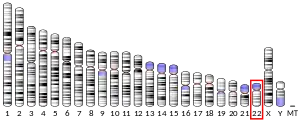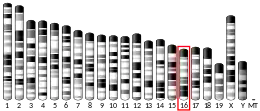| SEPTIN5 | |||||||||||||||||||||||||||||||||||||||||||||||||||
|---|---|---|---|---|---|---|---|---|---|---|---|---|---|---|---|---|---|---|---|---|---|---|---|---|---|---|---|---|---|---|---|---|---|---|---|---|---|---|---|---|---|---|---|---|---|---|---|---|---|---|---|
| Identifiers | |||||||||||||||||||||||||||||||||||||||||||||||||||
| Aliases | SEPTIN5, CDCREL, CDCREL-1, CDCREL1, H5, HCDCREL-1, PNUTL1, septin 5, SEPT5 | ||||||||||||||||||||||||||||||||||||||||||||||||||
| External IDs | OMIM: 602724 MGI: 1195461 HomoloGene: 74446 GeneCards: SEPTIN5 | ||||||||||||||||||||||||||||||||||||||||||||||||||
| |||||||||||||||||||||||||||||||||||||||||||||||||||
| |||||||||||||||||||||||||||||||||||||||||||||||||||
| |||||||||||||||||||||||||||||||||||||||||||||||||||
| |||||||||||||||||||||||||||||||||||||||||||||||||||
| |||||||||||||||||||||||||||||||||||||||||||||||||||
| Wikidata | |||||||||||||||||||||||||||||||||||||||||||||||||||
| |||||||||||||||||||||||||||||||||||||||||||||||||||
Septin-5 is a protein that in humans is encoded by the SEPT5 gene.[5][6][7]
Function
This gene is a member of the septin gene family of nucleotide binding proteins, originally described in yeast as cell division cycle regulatory proteins. Septins are highly conserved in yeast, Drosophila, and mouse and appear to regulate cytoskeletal organization. Disruption of septin function disturbs cytokinesis and results in large multinucleate or polyploid cells. This gene is mapped to 22q11, the region frequently deleted in DiGeorge and velocardiofacial syndromes. A translocation involving the MLL gene and this gene has also been reported in patients with acute myeloid leukemia. Two transcripts of this gene, a major one of 2.2 kb and a minor one of 3.5 kb, have been observed. The 2.2 kb form results from the utilization of a non-consensus polyA signal (AACAAT). In the absence of polyadenylation from this imperfect site, the consensus polyA signal of the downstream neighboring gene (GP1BB; platelet glycoprotein Ib) is used, resulting in the 3.5 kb transcript. An alternatively spliced transcript variant with a different 5' end has also been identified, but its full-length nature has not been completely determined.[7]
Interactions
SEPT5 has been shown to interact with:
References
- 1 2 3 GRCh38: Ensembl release 89: ENSG00000184702 - Ensembl, May 2017
- 1 2 3 GRCm38: Ensembl release 89: ENSMUSG00000072214 - Ensembl, May 2017
- ↑ "Human PubMed Reference:". National Center for Biotechnology Information, U.S. National Library of Medicine.
- ↑ "Mouse PubMed Reference:". National Center for Biotechnology Information, U.S. National Library of Medicine.
- ↑ McKie JM, Sutherland HF, Harvey E, Kim UJ, Scambler PJ (November 1997). "A human gene similar to Drosophila melanogaster peanut maps to the DiGeorge syndrome region of 22q11". Human Genetics. 101 (1): 6–12. doi:10.1007/s004390050576. PMID 9385360. S2CID 21377515.
- ↑ Yagi M, Zieger B, Roth GJ, Ware J (June 1998). "Structure and expression of the human septin gene HCDCREL-1". Gene. 212 (2): 229–36. doi:10.1016/S0378-1119(98)00146-2. PMID 9611266.
- 1 2 "Entrez Gene: SEPT5 septin 5".
- ↑ Choi P, Snyder H, Petrucelli L, Theisler C, Chong M, Zhang Y, Lim K, Chung KK, Kehoe K, D'Adamio L, Lee JM, Cochran E, Bowser R, Dawson TM, Wolozin B (October 2003). "SEPT5_v2 is a parkin-binding protein". Brain Research. Molecular Brain Research. 117 (2): 179–89. doi:10.1016/S0169-328X(03)00318-8. PMID 14559152.
- ↑ Liu M, Aneja R, Sun X, Xie S, Wang H, Wu X, Dong JT, Li M, Joshi HC, Zhou J (December 2008). "Parkin regulates Eg5 expression by Hsp70 ubiquitination-dependent inactivation of c-Jun NH2-terminal kinase". The Journal of Biological Chemistry. 283 (51): 35783–8. doi:10.1074/jbc.M806860200. PMID 18845538.
- ↑ Bläser S, Jersch K, Hainmann I, Zieger W, Wunderle D, Busse A, Zieger B (July 2003). "Isolation of new splice isoforms, characterization and expression analysis of the human septin SEPT8 (KIAA0202)". Gene. 312: 313–20. doi:10.1016/S0378-1119(03)00635-8. PMID 12909369.
- ↑ Bläser S, Jersch K, Hainmann I, Wunderle D, Zgaga-Griesz A, Busse A, Zieger B (May 2002). "Human septin-septin interaction: CDCrel-1 partners with KIAA0202". FEBS Letters. 519 (1–3): 169–72. doi:10.1016/S0014-5793(02)02749-7. PMID 12023038. S2CID 30822245.
Further reading
- Yagi M, Edelhoff S, Disteche CM, Roth GJ (July 1994). "Structural characterization and chromosomal location of the gene encoding human platelet glycoprotein Ib beta". The Journal of Biological Chemistry. 269 (26): 17424–7. doi:10.1016/S0021-9258(17)32456-0. PMID 8021244.
- Zieger B, Hashimoto Y, Ware J (February 1997). "Alternative expression of platelet glycoprotein Ib(beta) mRNA from an adjacent 5' gene with an imperfect polyadenylation signal sequence". The Journal of Clinical Investigation. 99 (3): 520–5. doi:10.1172/JCI119188. PMC 507827. PMID 9022087.
- Megonigal MD, Rappaport EF, Jones DH, Williams TM, Lovett BD, Kelly KM, Lerou PH, Moulton T, Budarf ML, Felix CA (May 1998). "t(11;22)(q23;q11.2) In acute myeloid leukemia of infant twins fuses MLL with hCDCrel, a cell division cycle gene in the genomic region of deletion in DiGeorge and velocardiofacial syndromes". Proceedings of the National Academy of Sciences of the United States of America. 95 (11): 6413–8. Bibcode:1998PNAS...95.6413M. doi:10.1073/pnas.95.11.6413. PMC 27754. PMID 9600980.
- Hsu SC, Hazuka CD, Roth R, Foletti DL, Heuser J, Scheller RH (June 1998). "Subunit composition, protein interactions, and structures of the mammalian brain sec6/8 complex and septin filaments". Neuron. 20 (6): 1111–22. doi:10.1016/S0896-6273(00)80493-6. PMID 9655500.
- Caltagarone J, Rhodes J, Honer WG, Bowser R (August 1998). "Localization of a novel septin protein, hCDCrel-1, in neurons of human brain". NeuroReport. 9 (12): 2907–12. doi:10.1097/00001756-199808240-00042. PMID 9760144. S2CID 10343782.
- Beites CL, Xie H, Bowser R, Trimble WS (May 1999). "The septin CDCrel-1 binds syntaxin and inhibits exocytosis". Nature Neuroscience. 2 (5): 434–9. doi:10.1038/8100. PMID 10321247. S2CID 5863477.
- Zhang Y, Gao J, Chung KK, Huang H, Dawson VL, Dawson TM (November 2000). "Parkin functions as an E2-dependent ubiquitin- protein ligase and promotes the degradation of the synaptic vesicle-associated protein, CDCrel-1". Proceedings of the National Academy of Sciences of the United States of America. 97 (24): 13354–9. Bibcode:2000PNAS...9713354Z. doi:10.1073/pnas.240347797. PMC 27228. PMID 11078524.
- Larisch S, Yi Y, Lotan R, Kerner H, Eimerl S, Tony Parks W, Gottfried Y, Birkey Reffey S, de Caestecker MP, Danielpour D, Book-Melamed N, Timberg R, Duckett CS, Lechleider RJ, Steller H, Orly J, Kim SJ, Roberts AB (December 2000). "A novel mitochondrial septin-like protein, ARTS, mediates apoptosis dependent on its P-loop motif". Nature Cell Biology. 2 (12): 915–21. doi:10.1038/35046566. PMID 11146656. S2CID 12321788.
- Dent J, Kato K, Peng XR, Martinez C, Cattaneo M, Poujol C, Nurden P, Nurden A, Trimble WS, Ware J (March 2002). "A prototypic platelet septin and its participation in secretion". Proceedings of the National Academy of Sciences of the United States of America. 99 (5): 3064–9. Bibcode:2002PNAS...99.3064D. doi:10.1073/pnas.052715199. PMC 122473. PMID 11880646.
- Bläser S, Jersch K, Hainmann I, Wunderle D, Zgaga-Griesz A, Busse A, Zieger B (May 2002). "Human septin-septin interaction: CDCrel-1 partners with KIAA0202". FEBS Letters. 519 (1–3): 169–72. doi:10.1016/S0014-5793(02)02749-7. PMID 12023038. S2CID 30822245.
- Bläser S, Jersch K, Hainmann I, Zieger W, Wunderle D, Busse A, Zieger B (July 2003). "Isolation of new splice isoforms, characterization and expression analysis of the human septin SEPT8 (KIAA0202)". Gene. 312: 313–20. doi:10.1016/S0378-1119(03)00635-8. PMID 12909369.
- Dong Z, Ferger B, Paterna JC, Vogel D, Furler S, Osinde M, Feldon J, Büeler H (October 2003). "Dopamine-dependent neurodegeneration in rats induced by viral vector-mediated overexpression of the parkin target protein, CDCrel-1". Proceedings of the National Academy of Sciences of the United States of America. 100 (21): 12438–43. Bibcode:2003PNAS..10012438D. doi:10.1073/pnas.2132992100. PMC 218776. PMID 14530399.
- Choi P, Snyder H, Petrucelli L, Theisler C, Chong M, Zhang Y, Lim K, Chung KK, Kehoe K, D'Adamio L, Lee JM, Cochran E, Bowser R, Dawson TM, Wolozin B (October 2003). "SEPT5_v2 is a parkin-binding protein". Brain Research. Molecular Brain Research. 117 (2): 179–89. doi:10.1016/S0169-328X(03)00318-8. PMID 14559152.
- Bläser S, Horn J, Würmell P, Bauer H, Strümpell S, Nurden P, Pagenstecher A, Busse A, Wunderle D, Hainmann I, Zieger B (May 2004). "The novel human platelet septin SEPT8 is an interaction partner of SEPT4". Thrombosis and Haemostasis. 91 (5): 959–66. doi:10.1160/TH03-09-0578. PMID 15116257. S2CID 22853459.
- Martínez C, Sanjuan MA, Dent JA, Karlsson L, Ware J (September 2004). "Human septin-septin interactions as a prerequisite for targeting septin complexes in the cytosol". The Biochemical Journal. 382 (Pt 3): 783–91. doi:10.1042/BJ20040372. PMC 1133953. PMID 15214843.
- Lehner B, Sanderson CM (July 2004). "A protein interaction framework for human mRNA degradation". Genome Research. 14 (7): 1315–23. doi:10.1101/gr.2122004. PMC 442147. PMID 15231747.





